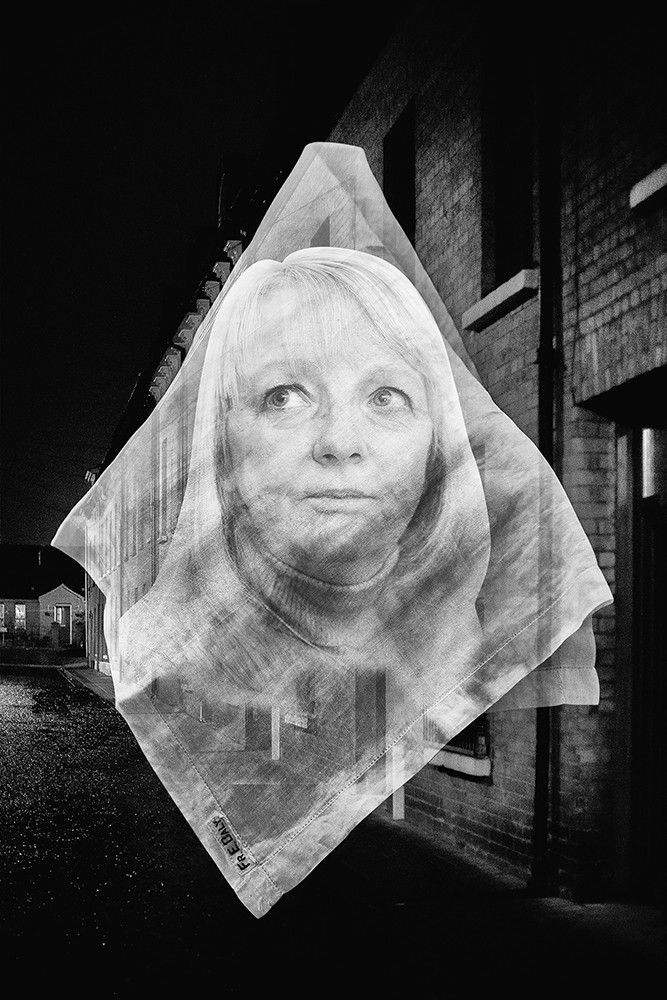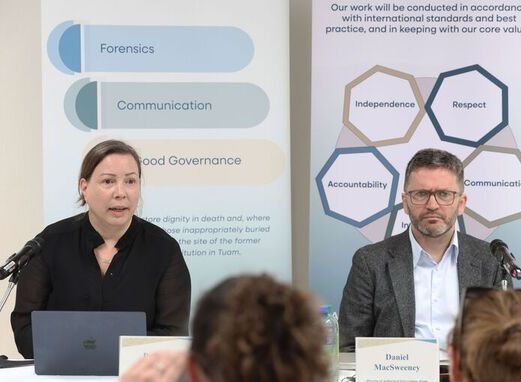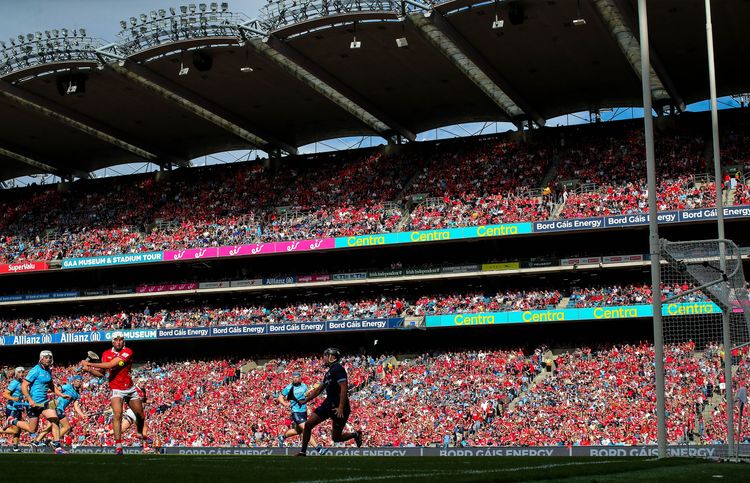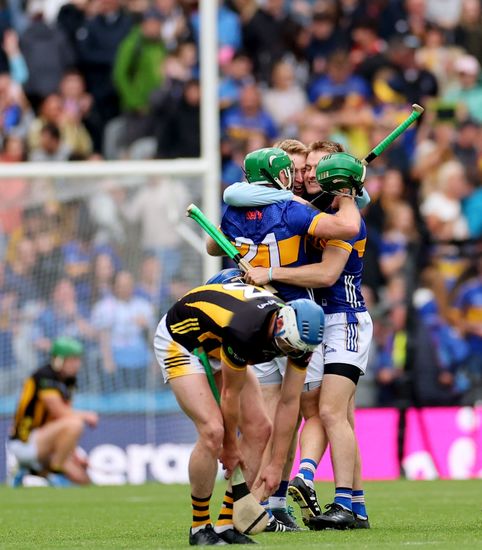The podcast has brought about an audio renaissance. The same was said two decades ago about the weblog, AKA blogs, and text, and for the same reasons. The format is accessible and democratic. It’s easy to set up, or at least so we’re told.
A podcast is inevitably more basic, more stripped down, when compared to a show or documentary on broadcast radio.
Still, when the folks involved are technically adept then there’s the possibility of something a cut above the rest. There has to be good content, of course, and the execution is key.
All those stars aligned when it came to Deirdre Brennan and Barry Connolly’s powerful three-episode podcast entitled “My Bloody Sunday,” about the Parachute Regiment’s killing of 13 marchers in Derry on Jan. 30, 1972.
Brennan is from the Republic but has family roots north of the border via her mother.
“I spent a large part of my childhood there during the Troubles,” she said. “Growing up in a household steeped in Northern Irish politics and Civil Rights it was very important to me to create a body of work to mark the 50th anniversary of Bloody Sunday in 2022.
“I am a photographer so the initial idea was to create a series of portraits of relatives of the victims of Bloody Sunday and those who were on the Civil Rights march [of Jan. 30, 1972],” Brennan added.
“The day before I was setting off to Derry for the first time, I was encouraged by Barry, a sound engineer with whom I share studio space at Plexa [in the Temple Bar district of Dublin], to record interviews with the relatives.”
Ultimately, she would also include interviews with the wounded and relatives of the wounded; media people like Bill Rukeyser, an American freelance reporter, Italian photojournalist Fulvio Grimaldi and the locally born and raised Eamonn McCann, who at the time was more prominent as a socialist activist and electoral candidate; and first responders who treated the wounded and dying, such as a Civil Rights marcher Nurse Ursula Clifford, who uses in her interview the term “My Bloody Sunday,” giving the series creators their title, and Charlie Glenn, an Order of Malta volunteer.
“The recordings were edited and arranged by Barry at Plexa,” said Brennan, who was producer on the project.
The voices of local political representative John Hume and Fr. Edward Daly are among those who are heard from the archives over the course of three one-hour episodes. Daly famously held a bloodied white handkerchief as he assisted Glenn and others carrying the mortally wounded Jackie Duddy away from the firing line, and the photographs and footage of that moment remain the most iconic of Bloody Sunday. (When the 17-year-old’s clothes were returned the handkerchief was included, his sister Kay Duddy reveals in “My Bloody Sunday,” and it’s still in the family’s possession.)
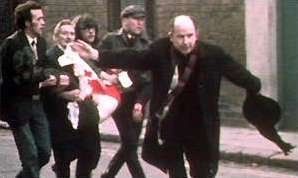
Fr. Edward Daly, right, on Bloody Sunday.
Episode One atmospherically sets the scene of a day 52 years ago that started out like any other Sunday of that era. It then relates the horrific events of Jan. 30, 1972, mostly through the memories of those interviewed by Brennan.
Episode Two interweaves the immediate impact of the killings upon the families and the funerals with the stories and memories of those whose lives had been taken – their passions and enthusiasms, what they worked at or were training for, their personalities. Relatives assume in several cases that their loved one would likely have married and settled down. As one sibling of a fatal victim says, “We lost his children as well.”
Two interviewees who can otherwise recall that time in meticulous detail have absolutely no memory of their loved one’s funeral. Another phenomenon mentioned more than once is the dread family members had of the body being brought to their home only for them to be traumatized again when it was taken out the front door for the funeral.
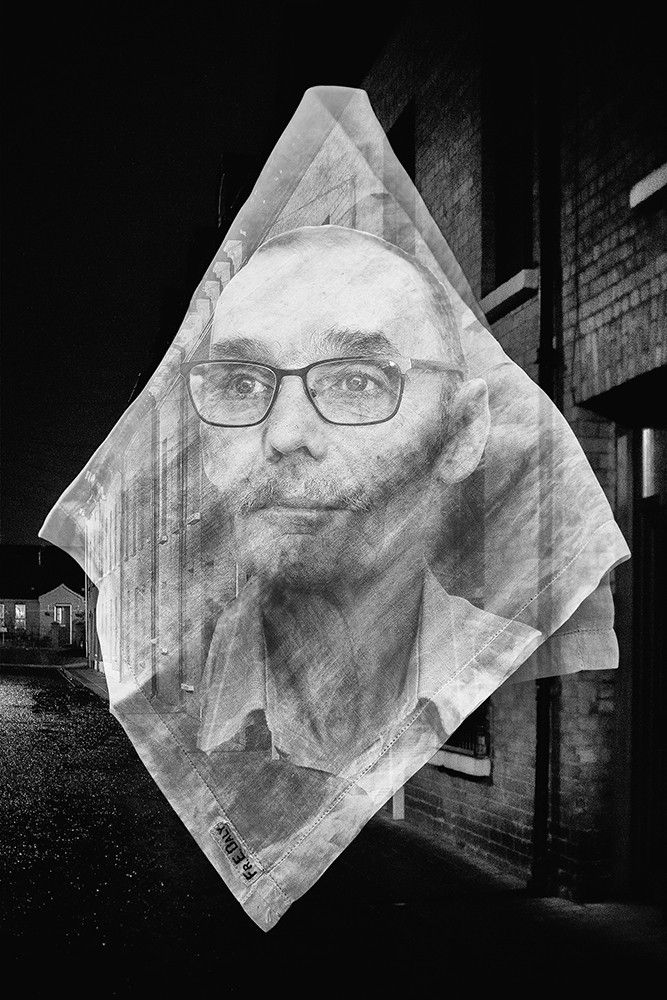
Deirdre Brennan’s portrait of Liam Wray whose 22-year-old brother James Wray was killed on Bloody Sunday. It is inspired by images of Fr. Daly waving a bloodied white handkerchief on Jan. 30, 1972, while he assisted those carrying the mortally wounded Jackie Duddy into Chamberlain Street, which is the backdrop of the portrait.
Episode Three focuses on the long campaign for justice. One interviewee said the Saville Inquiry published in June 2010 “formalized” what everybody in Derry knew the day after the massacre – those who were shot were innocent of any wrongdoing.
Saville reversed dramatically the findings of the infamous Widgery Inquiry of April 1972. Prime Minister David Cameron declaration in the House of Commons that the shootings were “unjustified and unjustifiable,” together with his official apology, brought enormous relief for the families and people like the by-then Bishop Daly.
Many, though, call the Saville process “flawed,” and while “Soldier F” will face trial, they say justice has been denied more generally. McCann believes that orders to shoot came from the highest levels in London, and that the local Stormont government was not involved whatever its views about it might have been. He describes the unionist politicians he knows and knew from that time, including ministers, as “very decent people" who are or were incapable of accepting that Bloody Sunday was planned and not the result of actions by “nine bad apples.”
One interviewee expresses the hope that the soldier who killed her brother will one day come forward to clear his conscience. Others have become resigned to the belief that the whole truth will not come out during their lifetime.
Brennan reported that the “families are very pleased with the production, feeling that it is a powerful and emotional telling of their stories in a novel way.”
She added, “They also feel it a valuable archival document in accurately telling the tragedy of Bloody Sunday to future generations. They are hoping for it to have a permanent home in Derry in the future.”
The podcaster and photographer Brennan said, “I would like to thank everyone involved who invited me into their homes and trusted me to tell their story.”
“My Bloody Sunday” is available to listen to on Spotify here and all podcast platforms, or can be accessed via Deirdre Brennan's website here.

